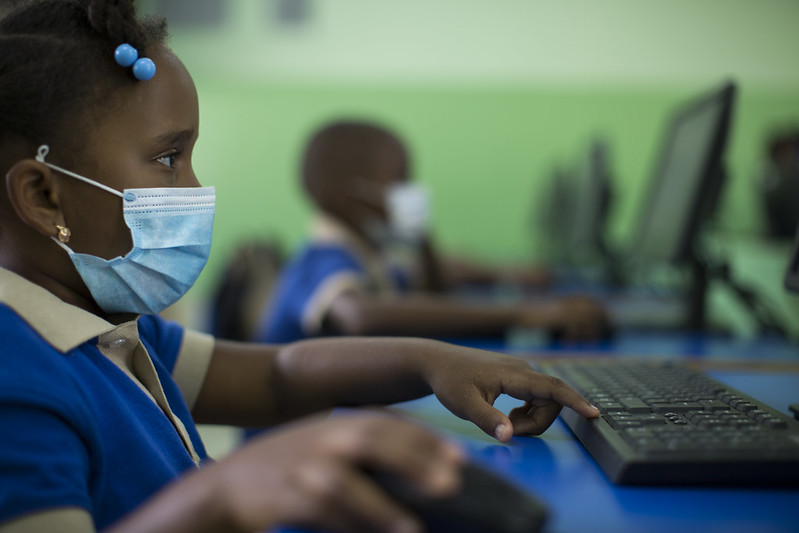In recent years, Covid-19 has pushed many developing nations into a schooling crisis. The World Bank predicts that across the Caribbean and Latin America, two out of every three students may not be able to adequately read at an age-appropriate level.
Thankfully, Caribbean governments have been investing more in their institutions and educational programs, mitigating the effects of prolonged school closures and challenging socio-economic conditions. Let’s take a look at what some of these nations are doing to work toward a prosperous future.
Dominica
The government of Dominica has been working to improve the country’s educational infrastructure, most recently by updating one of its oldest institutions: the Dominica Grammar School in the capital city of Roseau. Modernization efforts have introduced new high-tech classrooms, lecture halls, sports grounds and a library to the heart of the country. Moving forward, similar new additions will be made to schools nationwide, incorporating environmentally-resilient elements to protect students and staff in a country prone to natural hazards.
Much of the funding that goes towards improving Dominica’s educational facilities comes from the country’s Citizenship by Investment (CBI) scheme. The program offers individuals in other nations the right to live and work on the island, in return for investment in its real estate market or socio-economic initiatives via the Economic Diversification Fund. Through this means of investment, citizens-to-be can support growth in Dominica’s community — recent CBI allocations have helped to fund the construction of three new primary schools featuring modern technology and counseling rooms for emotional wellbeing.
By improving its education institutions, Dominica has created jobs for teachers, construction workers and administrative staff. Through this serious investment in the futures of coming generations, the government aims to raise its citizens as informed and proactive with a better quality of life than ever before.
St Kitts and Nevis
St Kitts and Nevis is a country in the West Indies composed of twin islands. When proposing budget changes for 2022, the Prime Minister of the nation committed $104 million to education, comprising over 10% of the overall federal budget. With growing investment, there are hopes of providing new opportunities to residents — such as offers of remote learning from British universities to attract further research
funding and career opportunities for the population.
Efforts have also been made to improve the quality of teaching across the country. As Senior Assistant Secretary in the Ministry of Education Dr Tricia Esdaille has explained, “the education ministry has worked on the modification of the education sector’s career pathway and the creation of a framework for continuing professional development.” As a result, changes have been introduced to professionalize the teaching force from 2019 to 2021, raising standards of schooling through measures such as annual in-service training.
As school and university investment grows, students are able to study at various institutions across St Kitts and Nevis, such as the Medical University of the Americas — contributing to a well-educated workforce that will serve the communities of the islands.
Haiti
A nation with a long history of devastating earthquakes, Haiti sits precariously on the edge of the shifting Caribbean tectonic plate. Ten years on from the catastrophic effects of the infamous 2010 quake in Port-au-Prince, another struck in 2021. To help communities build back with resilient infrastructure and long-term education systems, charity aid and education partnerships have funded the construction of temporary learning venues and offered health support to affected families. These initiatives have assisted in restoring stability and living standards on the island.
Governing bodies in Haiti are also committed to decentralizing investment and employment opportunities from the capital city of Port-au-Prince. For example, proposals have been made for the construction of the Sustainable Village and Learning Community in the region of Akaye. The new complex will house facilities for students aspiring to become nurses, entrepreneurs and construction workers, diversifying the Haitian workforce.
By investing in skilled labor and attracting investment elsewhere in the country, plans for new school and medical learning centers will enable Haiti to develop its economy and build resilience against all-too-common natural disasters.






